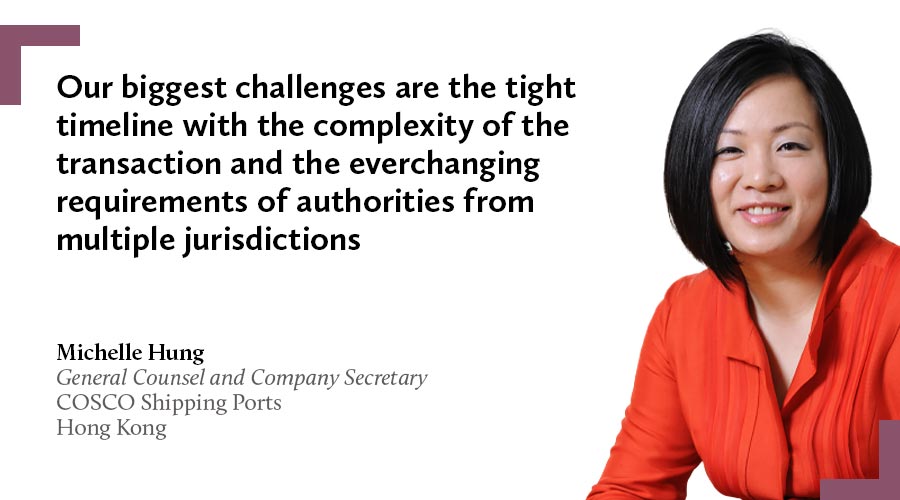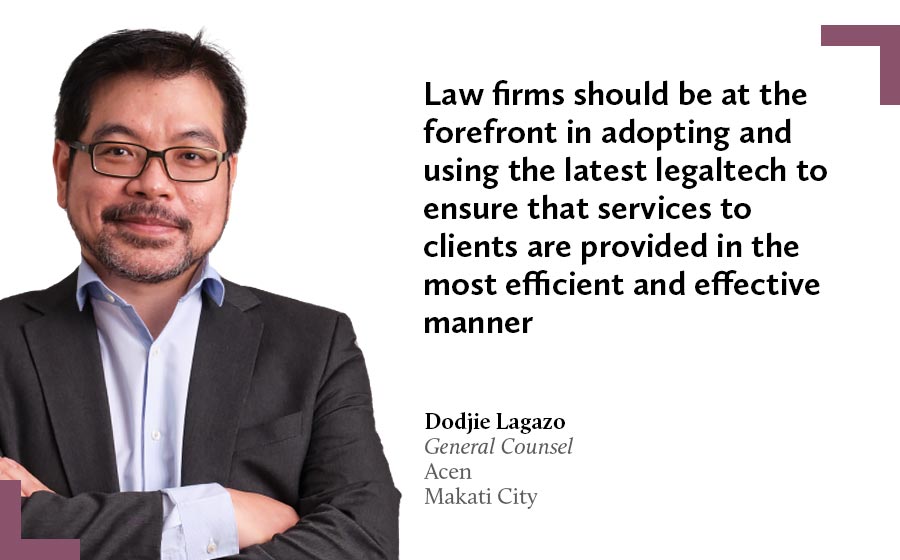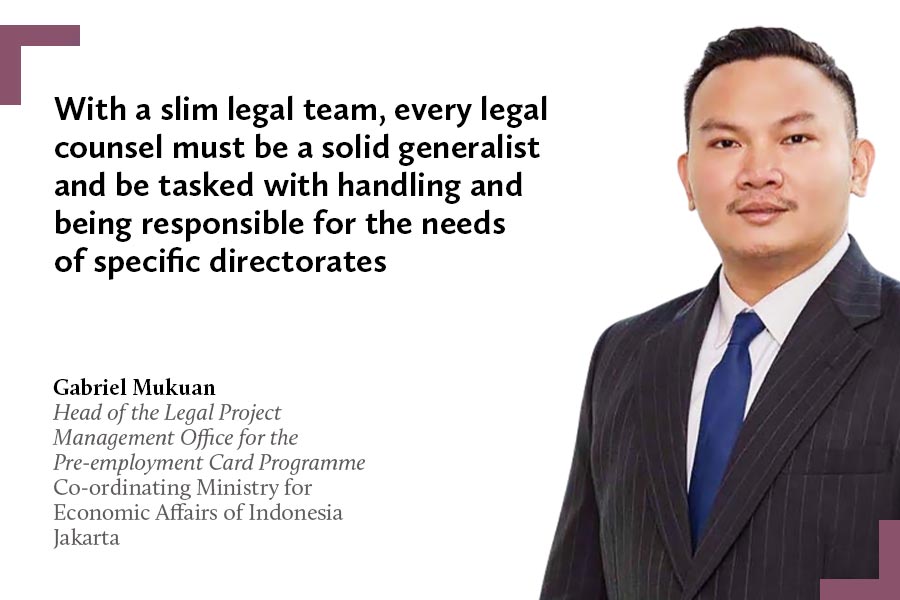Have you ever wondered why your clients prefer your law firm over others? Or perhaps what they particularly dislike about your own legal services? Our survey gauges the opinions of in-house counsel around the region on their pet peeves with law firms, as well as what hot topics have them engaging with their own legal teams. Putro Harnowo reports
Slow turnaround time and overpricing are the biggest turn-offs for in-house counsel in the region when dealing with their law firm counterparts, according to our survey tapping their top complaints. Poor quality of service, unmet expectations and poor communications are also among the top five grievances that make these clients unhappy.
Their views are what law firms would do well to take into consideration, and are contained in the latest survey of our sister publication, Asia Business Law Journal (ABLJ), to hear the real opinions of in-house counsel and better understand their expectations. The findings update from last year’s survey published in ABLJ’s September/October 2021 issue, which lamented pricing issues and poor quality as their top complaints.
On a positive note, emerging technologies have unlocked new opportunities for businesses worldwide, and in-house counsel increasingly see the potential for legaltech to make their lives easier. Our survey also gathers some strategies for optimising workloads in legal teams.
“The biggest legal challenge we face in our work is to ensure our business satisfies the increasingly complex compliance requirements imposed by different jurisdictions,” says Fan Linna, deputy head and general counsel of shipping finance at Bank of Communications Financial Leasing in Shanghai.
In view of this complexity, Fan sees the benefit of engaging those law firms that deliver fast turnaround, have a better understanding of the business, offer consistent quality of service, and that share newsletters and publications, particularly with legal updates in key jurisdictions where the company operates.
When dealing with the time-consuming process of dispute resolution, Satish Chopra, vice president at infrastructure concessions services provider Rohan Rajdeep Tollways in New Delhi, says law firms that can secure success at top speed are preferred.
As a business with operations across multiple states, “we require law firms who can support us on a day-to-day basis on issues in relation to our projects,” says Chopra. “An important aspect of our working relationships that we have with our law firms is to have a dedicated resource for fast turnaround time.”
Regular monitoring and sharing of information about regulations before they are signed into law are among the services that Maria Concepcion Simundac-Delos Santos, lead legal counsel at ING Bank in Manila, expects from law firms. Being aware of such upcoming changes, companies are able to give their input to regulators and anticipate potential impact.
“Cybersecurity and fintech are ever-changing landscapes,” says Simundac-Delos Santos. “It will be good if law firms can keep their clients up to date about the latest trends in the industry and their legal impacts.”
QUICK AND QUALITY
Solving unprecedented problems in a timely fashion is the main task for which in-house counsel need outside assistance. However, among 76 respondents to our survey, more than half cited slow turnaround and pricing issues as the most common complaints, followed by poor quality of service, unmet expectations, and poor communications. When it comes to billing methods, the majority of in-house counsel preferred project-based fees and flat rates, rather than the conventional hourly rates.
To support the need for agile workflow and efficient output, the ABLJ survey found that almost all in-house counsel have a positive view of legaltech. Almost half of the respondents (48%) said it was important or very important for law firms to utilise the latest legal technology, while a similar number (46%) thought it was moderately important. Five respondents said legaltech was only slightly important.
“Our biggest challenges are the tight timeline with the complexity of the transaction and the ever-changing requirements of authorities from multiple jurisdictions,” says Michelle Hung, general counsel and company secretary at COSCO Shipping Ports in Hong Kong.
Hung says law firms could add more value to their clients’ businesses by providing an accurate and timely assessment of the degree of legal and commercial risks of certain circumstances. In addition, law firms should be able to demonstrate sound judgement in safeguarding the company’s commercial interests.
For Yu Tze Yeung, senior manager at toy manufacturer New Bright Industrial in Hong Kong, law firms could help clients develop their own strategies and make decisions by looking for different perspectives, while also delivering timely and competent legal advice. In addition, providing legal updates in areas of interest to the business would be highly desirable.
“I may be asked to deal with legal areas that are beyond my expertise, or there are insufficient in-house resources to go for in-depth legal research,” says Yu. “One may also be required to accomplish a legal assignment in an extremely tight timeframe when the boss placing the instruction has no idea of the complexity, the intricacy of the legal issues involved, or the amount of time to be input.”
Similarly, validating the applicability and implementation of new legislation within a short time is the biggest obstacle for Radha Papinani, general counsel at customer service provider IGT Solutions Private in Gurugram.
“A law firm can add value by deploying a subject matter expert for every field that requires legal intervention, irrespective of whether it has the least demand in the market,” says Papinani.
Dodjie Lagazo, general counsel at renewable power generation company Acen in the Philippines’ Makati City, strives to continually improve the legal operation’s processes and systems to make life for his in-house counsel team easier. For instance, preparing agreed templates for contracts is a good option so in-house counsel can focus more on legal work that requires more thinking than doing.
“Using available legaltech to make contract and project management easier is also critical, especially with multiple ongoing projects,” says Lagazo. “Equipping legal team members with the latest legal tools and training enables us to expand the responsibilities of our existing team members instead of hiring new lawyers to perform the same work.
“Law firms should be at the forefront in adopting and using the latest legaltech to ensure that services to clients are provided in the most efficient and effective manner,” says Lagazo. “Making legal processes easier and being able to provide legal advice efficiently will definitely matter for long-term relationships between law firms and clients.”
BUILDING BRIDGES
In a very competitive legal market, maintaining a good rapport with clients is crucial for law firms. More than half of the respondents in ABLJ’s survey said that an existing relationship is the top consideration in finding local and international law firms. However, when picking between many options, a law firm’s track record plays a huge role in the final decision, as confirmed by 59% of respondents.
For Lagazo, multiple and overlapping projects involving different jurisdictions with limited time to complete are key reasons for bringing in external help.
“Given that renewable energy and its regulations are continually evolving, we also rely on international counsel to take advantage of their expertise and experience on these new matters,” says Lagazo. “In particular, offshore wind and hydrogen are very new technologies, at least in the Philippines, and international counsel have the benefit of experience and exposure to projects using these new technologies.”
Alex Chu, general counsel at private equity investment firm SIG Asia Investments in Shanghai, sees the constant change of the regulatory environment in China as a big issue. External counsel that can ease this concern are highly valued.
“Law firms can add value to business by supporting the commercial needs of the investment team to the maximum extent that the legal risk is controlled or mitigated,” says Chu.
As new legal challenges and regulations continue to pop up in many jurisdictions, Kezia Pembayun, general counsel of South Asia Pacific at L’Oreal in Singapore, cites limited resources and headcount as her biggest challenge, and she seeks law firms that work efficiently and understand her business.
“Working with a law firm that is efficient, and is not fee-focused, will foster a more sustainable relationship with that law firm,” says Pembayun. Lack of understanding of the business of the client can mean a law firm’s advice is not pragmatic and may be irrelevant, she adds.
Rajendra Lade, general manager of legal at Hindustan Petroleum in Mumbai, looks for a law firm that can give practical and business-like advice, while avoiding unnecessary litigation. “The research base should be very strong so that the correct position of law is communicated to the client for proactive and legally correct action,” says Lade. “Inflated billing is a major issue,” he adds.
Singapore-based general manager at a Japanese multinational banking institution, who wants to remain anonymous, says law firms can add more value to businesses by having a deeper understanding of an agreement and being less concerned with churning documents or sticking to templates.
“Sometimes the legal work may involve foreign law or a foreign element, e.g., an application for a utility patent in the US, registration of a trademark in the EU, or a cross-border acquisition deal,” the general manager says. “A local firm may not have the requisite knowledge, expertise or experience to deal with the legal matters at issue, in which case one may have to look for the help of international law firms.”
RUNNING THE SHOP
Amid ongoing supply chain disruptions, increasing regulatory complexity, and an unstable geopolitical landscape, legal departments are facing more pressure than ever before. Many in-house counsel in the survey are invested in proactively building their legal teams’ workflow and processes, as well as implementing effective technology solutions.
Papinani, of IGT Solutions Private, aligns each professional to specific clients by region. This reduces the review time of all related documents while handling a request, aids flexibility in being available at the required time zone and, further, is an added advantage to stay close to business and key stakeholders.
“Since this is a specialised area with zero errors [allowed], the professionals should be allowed to take an individual decision, with the least intervention to the extent possible, and work on varied challenging projects while ensuring [they are] correctly compensated per market standards,” says Papinani.
Running a small team with a massive scope, Gabriel Mukuan, head of the legal project management office for the pre-employment card programme at the Co-ordinating Ministry for Economic Affairs of Indonesia in Jakarta, sees the need for the organisation to be lean and agile.
The pre-employment card programme is the Indonesian government’s initiative, started in April 2020, which aims to provide training services to jobseekers and terminated workers.
“Since its inception in 2020, less than 200 people have been managing the programme with outreach across Indonesia and more than 16 million recipients,” says Mukuan. “In guiding this giant programme and its management from a legal aspect, with a slim legal team, every legal counsel must be a solid generalist and be tasked with handling and being responsible for the needs of specific directorates.”
You must be a
subscribersubscribersubscribersubscriber
to read this content, please
subscribesubscribesubscribesubscribe
today.
For group subscribers, please click here to access.
Interested in group subscription? Please contact us.























